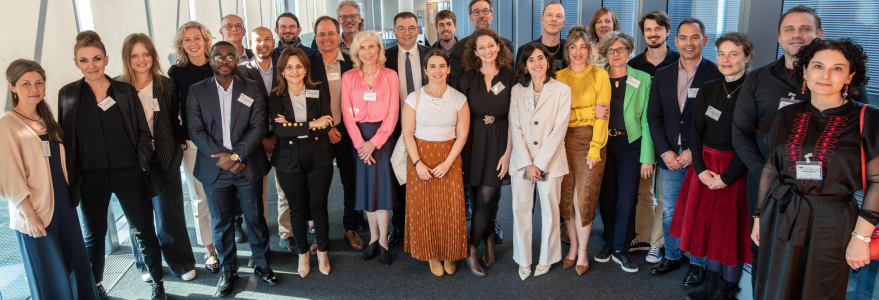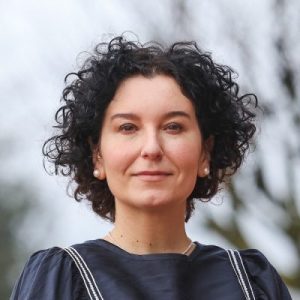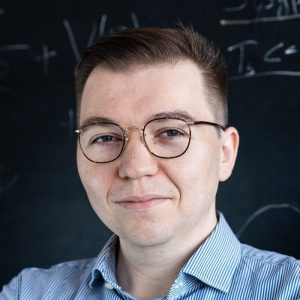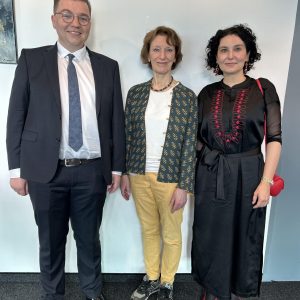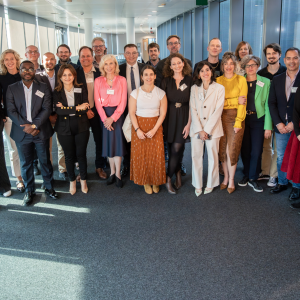Researchers from the University of Warsaw – Prof. Justyna Olko from the Faculty of “Artes Liberales” and Prof. Michał Tomza from the Faculty of Physics – have become ambassadors of the European Research Council (ERC) programme, which is intended to strengthen the role and visibility of this institution in Europe and around the world.
On 28th April the European Research Council (ERC) and the Association of ERC Grantees (AERG) launched the new „Ambassadors for the ERC” network . It connects 32 people from 21 European Union countries and associated countries.. They represent different fields of science – from natural sciences, through social and humanities, to physics and engineering.
Among the ambassadors are two scientists from the University of Warsaw – Prof. Justyna Olko from the Faculty of “Artes Liberales” and Prof. Michał Tomza from the Faculty of Physics.
Scientists from the UW
– In the face of growing threats and challenges, Europe needs groundbreaking, transparent and fully autonomous research more than ever before. A strong European Research Council is their best guarantor and promoter, which is why it is worth supporting it by all means. We have a lot of work to do in Poland to ensure that our share of ERC grants actually reflects the significant potential of our scientific community. We also still need better administrative and organisational solutions that would allow for more optimal and efficient implementation of projects. I hope that by working together with other ERC ambassadors, researchers who have received ERC grants, and national and European institutions, we will be able to jointly contribute to the implementation of these tasks – says Prof. Justyna Olko.
The aim of the “Ambassadors for the ERC” initiative is to further strengthen the role and visibility of the ERC in Europe and worldwide, including in each of the EU member states. Specifically, the focus is on deepening the understanding of how fundamental and frontier research contribute to building European autonomy in technology and society-enhancing resilience to global threats such as challenges to democracy, public health, and climate change, and improving the capacity to respond to both local and global issues. A key part of this work also involves engaging with society, combating disinformation, promoting research transparency, and improving the quality of scientific evaluation.
– Further development of Europe must be based on knowledge and science in order to maintain our economic competitiveness and social stability. Therefore, an important task of the ambassadors will also be to strengthen awareness and support for basic research in society as a foundation that is crucial both for the development of innovative advanced technologies and ensuring a good quality of life – emphasizes Prof. Michał Tomza.
The assumption of the programme is also to increase the success of Polish researchers in obtaining ERC grants, generate more effective support for the application process and project implementation, and identify barriers in this process. The activities of ambassadors should therefore be actively supported by their home universities, National Contact Points, the Ministry of Science and Higher Education and other institutions in the member states.
Prof. Justyna Olko
Prof. Justyna Olko works at the Faculty of “Artes Liberales” at the University of Warsaw. She is also the director of the Center for Engaged Studies on Cultural Continuity. The researcher specialises in ethnohistory, anthropology, and sociolinguistics of pre-Hispanic and colonial Mesoamerica and in the broadly understood issues of minority sociolinguistics, intercultural transfer and linguistic-cultural contact, as well as acculturation and traumatisation of indigenous and minority groups.
Prof. Justyna Olko is a laureate of ERC – Starting grants for the project “Europe and America in Contact: A Multidisciplinary Study of Cross-Cultural Transfer in the New World Across Time” and the Consolidator project “Multilingual worlds – neglected histories. Uncovering their emergence, continuity, and loss in past and present societies” (MULTILING-HIST).
Prof. Michał Tomza
Prof. Michał Tomza represents the Faculty of Physics at the University of Warsaw. He is a Professor, leader of the Quantum Molecular Systems research group and head of the Center for Atomic, Molecular and Optical Physics at the University of Warsaw. Prof. Tomza specialises in the physics and chemistry of ultracold quantum matter, including the theory of interactions and collisions of ultracold atoms, ions and molecules controlled by electromagnetic fields and their application in quantum science in close cooperation with experimental groups.
In 2021, Prof. Michał Tomza received an ERC Starting Grant for the project “Ultracold polyatomic molecules for controlled chemistry and precision physics” (QuantMol).



